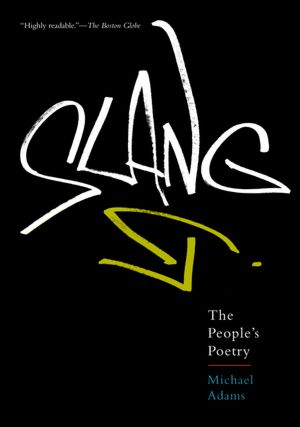Published by Oxford University Press
Slang dictionaries were always fairly well-thumbed tomes at my school and I presume they are in your neck of the woods – as curious girls of a grammar school that had not yet emerged from the Victorian, we just couldn’t resist looking up forbidden words.
But Slang: The People’s Poetry is no gratuitous display of some of the fruitier aspects of our rich language but an intelligent exploration of how and why slang is an important indicator that it is alive and kicking.
This is Michael Adams’s second exploration of slang and he does so through scholarly yet accessible argument. Quite rightly, Adams, associate professor of English at Indiana University, asks us to celebrate the existence of slang, which is not just restricted to define a particular group of people (teenagers, mostly) but contributes to the language as a whole. He also explores the knotty subject of how slang is defined and recorded – for example, he notes that old slang (used by not many people) takes up as much space in dictionaries as slang used by lots of people now.
Plenty of ground is covered: Why is the invention of slang so rife among teenagers? ‘Because talking occupies so much of a teen’s time’ (the theory of Marcel Dinesi); what happens when teenage slang drifts into adult use (it is no longer identified as youth slang); why we latch onto slang (because it awakens our linguistic boredom.). This is a useful book to have in the library to be enjoyed by lovers of language and ‘haters’ of slang. You’ll understand why we need it; if only to confirm what we as adults know – one assured way of losing ‘respec’ is to try to speak ‘down wiv da kidz



